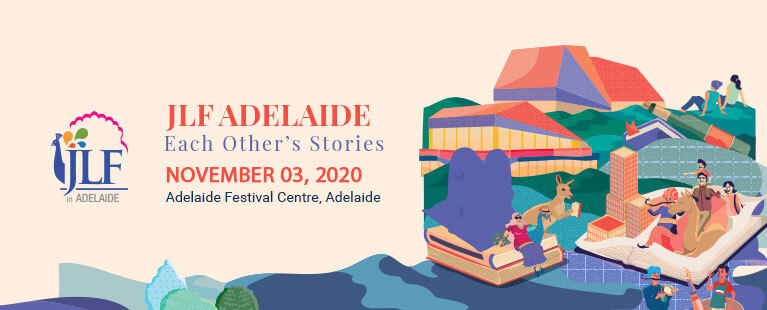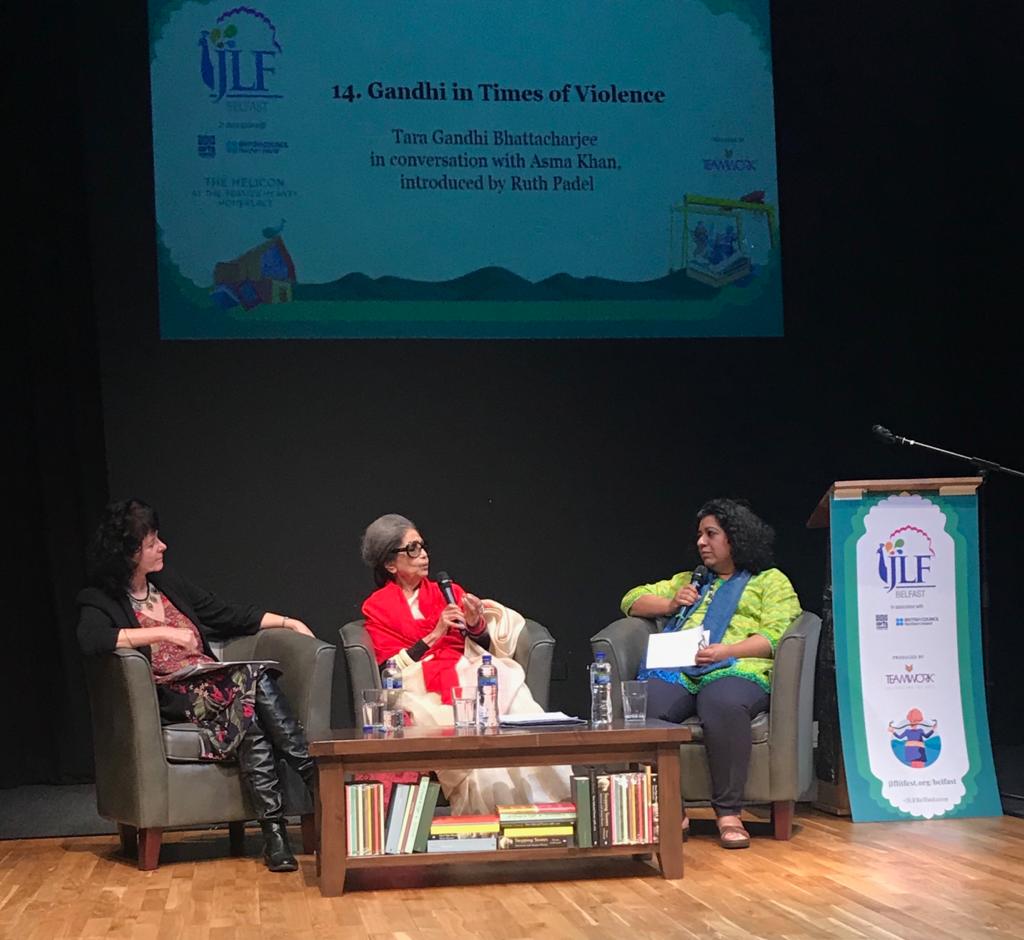


Foremothers: Women and Freedom, Bee Rowlatt, Lucy Caldwell and Namita Gokhale in conversation with Vayu Naidu
The theme for this all-female group discussion was foremothers - those strong and pioneering women who had inspired the assembled writers. Also, the importance of remembering women who are all too easily erased from history.
The moderator, Vayu Naidu, began the session with the question: “Foremothers appear in the domestic and the political spheres, but what exactly is this thing called a ‘foremother’?”
Namita Gokhale, who hails from the Himalayan Mountains, said she had recently been handed a matriarchal family tree going back nine generations, which is unusual, as patriarchal family trees are more common. She said that this had given her a distinct feeling of where her inner strength as a woman came from. She added later in the discussion that she had always been part of a family of four living generations and that being part of that had also helped hone her identity as a strong woman.
“We’re told Indian women are shy,” she said. “We’re not… I’m very religious and I always identified with the bad-tempered Indian goddess.” She added that she liked the mantra, ‘fear nothing’.
For Northern Irish writer, Lucy Caldwell, highlighting foremothers, particularly in the writing world, is incredibly important. Having been involved with two all-Irish female author anthologies in recent years – The Long Gaze Back and The Glass Shore – she said that she considered those part of her history. She added that her mum had always taken her to the library as a child and was another influential woman in her life. Becoming a mother herself had further helped to shape her writing.
“The thing that changed my writing life was having children,” she said. “It gave me a new fearlessness. I didn’t care what anyone thought about my writing anymore.”
For Bee Rowlatt, Mary Wollstonecraft – described as ‘the first celebrity feminist’ - has been an incredibly influential foremother and she spoke passionately about her during the discussion. Discovering Wollstonecraft’s story as a literature student, Rowlatt subsequently travelled the world with her baby son, mirroring Wollstonecraft’s own voyage and writing about the experience in her travel book, In Search of Mary.
“Mary Wollstonecraft went on a voyage, a treasure hunt, with her 11-month-old baby,” she said. “She wrote a bestseller along the way. I decided I would try this too…
“Everywhere I look in history it’s the women’s voices, the women who are vectors of information. They know what’s going on and you ignore that at your peril.”
The event closed with a Q&A from the audience, which saw some further discussion on the importance of recording women in history.
Gokhale had earlier urged everyone to “reach out to the older people in your lives and record”.
She added, “It’s the lack of records of women’s lives which makes it more important to research them.”


Leave a comment